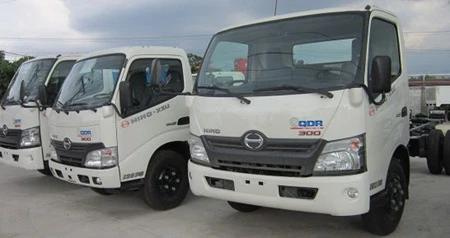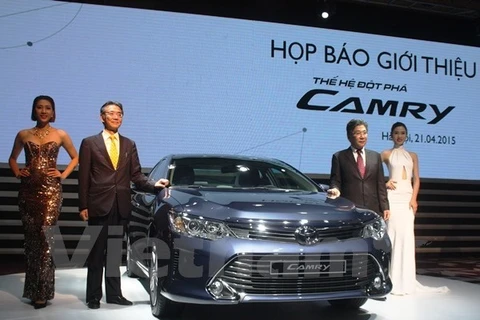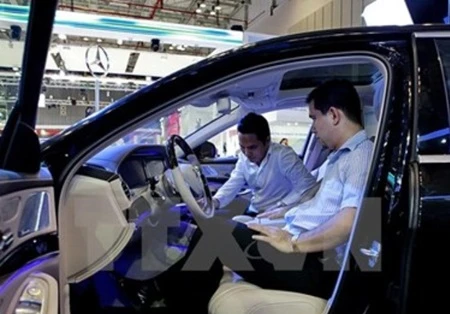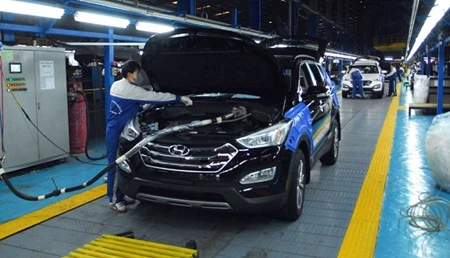 An auto production line at Thanh Cong Huyndai Auto Plant in Ninh Binh Province's Gian Khau Zone.
An auto production line at Thanh Cong Huyndai Auto Plant in Ninh Binh Province's Gian Khau Zone.(Photo: VNA)
Hanoi (VNA) – Vietnam’s car import turnover in December 2016 increased in both quantity and value, making the year’s total annual car imports finish at 2.3 billion USD, according to the General Statistics Office (GSO).
In particular, an estimated 16,000 vehicles were imported in December, 4,000 higher than the previous month, with the imported value jumping from 190 million USD in November to 227 million USD in December.
115,000 vehicles were imported in 2016, thanks in part to the hike in December.
This high import turnover for 2016, though down by 8.5 percent in number and 22.1 percent in value compared to that of 2015, was still encouraging for the imported car market.
There were several reasons for the decrease in turnover for imported vehicles, the biggest being Vietnam’s import tax policy.
Since the beginning of 2016, imported cars had been subjected to the new Special Consumption Tax, calculated based on the bulk import price of the importer instead of the previously used method of adding import tax to the cost insurance and freight price. This change increased the price of imported vehicles by about three percent in total.
The government should find a much-needed solution to calculate a fair import tax, said Tran Tan Trung, director of Lien A International, Audi’s distributor in Vietnam.
Trung said that importers should provide governmental agencies with the needed vehicle data as to easily identify the price and the appropriate tax levels, as indicated by manufacturers.
This proposal is backed authoritative agencies, according to Nguyen Quang Son of the General Department of Customs’ Department of Customs Supervision and Management. He added that the department had applied the method and demanded vehicle companies to update the date regularly, even monthly, to facilitate the tax database.
The change in taxation mainly affected imported vehicles, as these had been vehicles with larges engines and higher fuel consumption than vehicles assembled in Vietnam.
From July 1, 2016, the Special Consumption Tax began to apply to vehicles with engine cylinder capacity of three litres and more, and the added tax value on such cars was pushed to 150 percent from 60 percent.
Those that could benefit from this tax included imported cars from Thailand and Indonesia. These vehicles make up the mid-end market with smaller engines.
According to the Ministry of Finance, imported cars from Thailand and Indonesia accounted for two third of total number of imported vehicles in 2016.
Anticipation for the car market in 2017 indicated a significant rise in demand for whole imported cars, both new and used. The demand for new cars will increase faster with many brands switching from assembling in Vietnam to importing whole vehicles in 2017 such as Toyota, Honda, Ford or Mitsubishi, in addition to the market demand for semi-trailer trucks imported from Thailand.
However, import of cars in 2017 might very likely encounter obstacles as procedures on imports, clearance and tariffs will be tightened.
Additionally, Vietnam spent 1.4 billion USD last year on car accessories and spare parts./.
VNA























